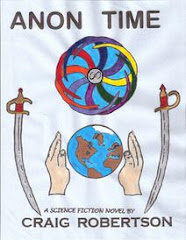The publishing world is like a city after a massive earthquake. What was is gone and what's next is unclear. The only certainty is that no one knows what comes next. New players emerge, old one vie for relevance, and some brash latecomer may emerge as the new boss.
The walls of the citadel known as "Traditional Publishing" (TP) are being successfully breached by the upstart, "Independent Publishing" (IP). Recent estimates have it that the revenues of IP have surpassed those of the Big Five TPs. Such a feat was unimaginable a decade ago, and a ludicrous pipe dream a decade before that.
Of the multiple ramifications of this switch from TP to IP, the one which is most lamentable death to my way of seeing it is the demise of the great novel. Name a few of the greats. Moby Dick, Something Wicked This Way Comes, 1984, The Odyssey. New entries into this exclusive club will never see the light of day. They will become unpublishable relics. Why? They will go the way of the dinosaur because they are stand-alone books. There will be no Book 2: Something Wicked Is Still This Way Coming or Book 3:Dudes, It's Almost Here, The Wicked Something.
The reason stand-alones seem doomed is the sea change in marketing strategy that is occurring in this brave new world of publishing. In order for an IP author to be successful, he or she must create a series. To earn a viable, sustainable income, indie authors must lock their readers into a long set of sequels. A prolific author may have several unrelated series concurrently, so called worlds. The serial format is king because it is the only sure bet for commercial success. Mark Dawson has his John Milton series. Marie Force has her Gansett Island, Fatal, and A Green Mountain Romance sagas. Bella Andre has even more, including several Sullivans worlds.
TP is no stranger to the power of series, either. Need I say anything past the names Nora Roberts, JK Rowlings, and Spider Robinson. In the tumultuous battle between TP and IP, the series will be the new gold standard. I could imagine with a cringe the response F. Scott Fitzgerald would receive to his pitch to the Big Five for his ideas for The Great Gatsby:
FSF: A...a sequel? No, gentlemen, remember I said Gatsby is killed in at the end? There can be no next book."
TP: What if he was only badly wounded?
FSF: No! He's dies. That's absolutely central to my intent for the story.
TP: Fine, son. We'll get back to you, okay?
FSF: Oh, when will you get back to me?
TP: Soon. Very soon. Ah, look, we have a 2:00 with some gal named Christie, so we gotta end this now. Our secretary will show you out.
FSF (over his shoulder): I've been thinking about another book. A couple moves to southern France. They're not too happy and there's a lot of psychiatric issue at play.
The sound of a door slamming is heard.
Even now, big name authors like Steven King or John Grisham can certainly write whatever they choose. If the muse inspires them to write a stand-alone, TP will published it, promote it, and profit from it. But, there will come a day where all the cash-cows of today are gone. Who will stand ready to replace them? I betting it will be someone with two gifts ahead of all others. High productivity and the willingness to commit to a long series. Likeliest of all, it will be someone who already has started with IP and made a name for themselves and their series. They will bring a huge flock of hungry sheep to the fold and they will cash in handsomely on their catalogues.
I don't maintain that authors who produce such serialized work are inferior in any way. Many are yeoman writers worthy of great praise. But, they will not be business people with one-hit wonders rattling around in their heads. Sorry Emily Bronte, Margaret Mitchell, Sylvia Plath, and J.D. Salinger, there's just no room for you on the bus any longer. Please, don't quit your day jobs.
Sunday, August 14, 2016
Subscribe to:
Post Comments (Atom)










No comments:
Post a Comment